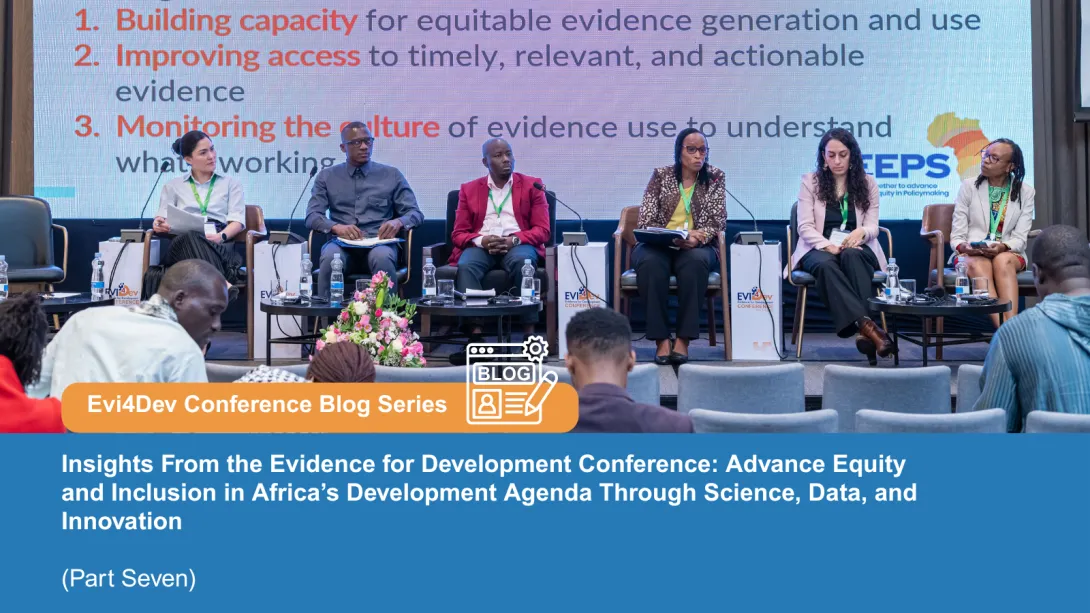
As Africa charts its path toward sustainable development, one principle must be at the heart of every effort: equity and inclusion. Across the continent, too many voices remain unheard, particularly those of marginalised communities, women, and underrepresented groups. The first-ever Evidence for Development (Evi4Dev) Conference stressed the urgent need to harness science, technology, data, and innovation to build a more inclusive and equitable Africa.
Equity and inclusion are the foundation to effective development. When policies and programmes exclude certain groups or fail to address their specific needs, development outcomes are skewed. Conversely, inclusive approaches that consider marginalised voices and leverage data-driven solutions yield more impactful, lasting progress.
There is a need for governments to strengthen the implementation of inclusive, evidence-based policies that promote equal opportunities for all genders in innovation and leadership. Gender equity is not a box to tick; it is a critical driver of economic growth and social well-being. There is need to dismantle systemic barriers, transforming power dynamics, and creating environments where everyone can lead, thrive, and shape the future on equal footing. Empowering women and girls to participate fully in science, technology, and innovation sectors is essential for Africa’s future.
Inclusive development also demands reimagining education and learning systems. Learning programmes need be redesigned to accommodate diverse learning needs, ensuring equitable access for all learners, regardless of gender, disability, or socio-economic background. Only then can we nurture the full potential of all Africa’s young minds.
More importantly, development actors should embed community-led models that leverage local data to design and implement gender-responsive policies and programmes. This grassroots involvement ensures interventions are culturally relevant and effectively address the lived realities of marginalised groups.
Funding agencies also have a pivotal role to play by adopting inclusive funding approaches that intentionally support marginalised and underrepresented innovators. Access to resources remains one of the biggest hurdles for many promising African entrepreneurs and researchers. Intentional, equitable funding strategies will enable a more diverse innovation ecosystem where fresh ideas from all corners of society can thrive.
The pathway to a truly inclusive Africa requires commitment from governments, development partners, funders, and communities to prioritise equity in every step of the development process. When science, technology, data, and innovation are harnessed inclusively, the benefits extend beyond narrow groups and uplift entire societies.
By amplifying marginalised voices and ensuring equal opportunities, Africa can accelerate toward its vision of prosperity, resilience, and shared growth. The future of African development hinges on embracing this inclusive, evidence-based approach.

